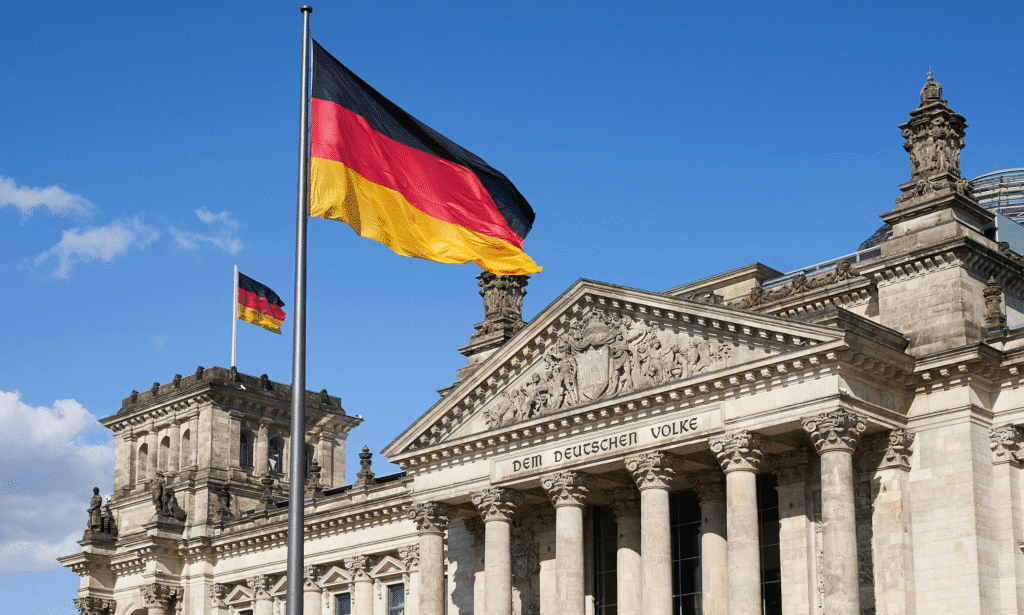Trade between countries is never simple. It involves many rules, taxes, and agreements that take years to negotiate. Right now, Germany has made it very clear that the United States must first reduce tariffs, or extra taxes, on cars made in Europe before a bigger trade deal between the European Union (EU) and the US can be completed in writing. Without this step, Germany believes that the deal cannot move forward in a fair way.
On Monday, a German government spokesperson explained the country’s position. “In particular, car tariffs must be reduced quickly as agreed. We are also aware of the considerable burden on the export-orientated economy. … Our role here is to continue to fully support the European Commission in this process,” the spokesperson said during a press conference.
This statement shows how important cars are for Germany. The German economy depends heavily on car production and exports. Companies like Volkswagen, BMW, and Mercedes-Benz make millions of vehicles every year, and many of them are sold outside of Europe. When the United States puts high tariffs on these cars, it makes them more expensive for American customers to buy. This hurts German companies because fewer people in the US will purchase their vehicles.
To understand why this issue matters so much, let’s take a closer look. Tariffs are like extra charges or taxes that governments add to imported goods. For example, if an American buyer wants to purchase a German-made BMW, and the US government has placed a 25% tariff on European cars, the price of that BMW goes up by 25%. As a result, many people might choose cheaper cars made in the US instead. For German companies, this means losing customers and money.

Germany is asking the US to keep its word. Earlier, both sides had agreed that tariffs on European cars would be lowered. Germany now wants the US to act on that promise. Without it, Germany feels that a written EU-US trade deal would be incomplete and unfair. The statement from the spokesperson reflects the pressure felt inside the country. Germany’s economy is export-oriented, meaning it depends a lot on selling goods to other countries. Cars, machinery, and industrial products are at the heart of its economy. If exports face high tariffs, companies suffer, workers may lose jobs, and the economy slows down.
The European Commission, which handles trade deals for all EU countries, is currently leading the negotiations with the United States. Germany has promised to give full support to the Commission in this process. This shows unity within the European Union, but at the same time, Germany wants its specific concerns—like car tariffs—to remain at the center of talks.
Car exports are not just about business numbers. They are also linked to people’s livelihoods. In Germany, millions of workers are employed in the automobile industry. From factory workers who assemble vehicles, to engineers designing new models, to suppliers making parts, the industry supports families across the nation. When tariffs reduce sales abroad, companies might cut jobs or reduce investments in new technology. That is why this issue feels so urgent.
The US, on the other hand, wants to protect its own carmakers. American companies like Ford and General Motors compete with European brands. Higher tariffs make imported cars more expensive, giving local companies an advantage in their home market. But this protection comes at a cost—American consumers have to pay higher prices, and it can also lead to tensions with trading partners like Germany.
Trade disputes between big economies are not new. In the past, both the EU and the US have argued over products ranging from steel to food. However, cars are different because they are one of Europe’s biggest exports and one of Germany’s proudest industries. For many Germans, cars represent not just jobs, but also national identity and global reputation.
The statement made by the German government reflects a deeper worry. The global economy has already been under stress due to issues like inflation, energy costs, and slow growth in major markets. Any further strain on exports could push companies into difficult positions. Germany knows that without fair trade rules, its industries could lose competitiveness.
The demand for lower car tariffs also highlights how complex international trade can be. It’s not just about selling products but also about building trust. When countries make agreements, they are expected to honor them. If one side delays or changes its commitments, the other side feels cheated. In this case, Germany is reminding the US of the earlier agreement and pressing for quick action.
At the heart of this story is a simple question: can the EU and the US find common ground? Both sides benefit from trade, but each also wants to protect its industries. Germany’s voice is strong because of its central role in Europe’s economy. By stressing the need for tariff cuts, Germany is also standing up for the many workers and families who depend on the success of the car industry.
The harbour in Duisburg, where brand-new cars are stored before being shipped abroad, is just one example of how global Germany’s car industry is. Each car represents not only advanced engineering but also the work of many hands and minds. If tariffs block their way into the US market, these cars may not find buyers, and the chain of jobs connected to them could be at risk.
As trade talks continue, the world is watching. Will the US lower tariffs as promised? Will Germany’s push succeed in shaping the final deal? These questions will decide not just the future of EU-US trade relations but also the everyday lives of many workers.
For now, Germany’s message is loud and clear: lower the tariffs first, then write the deal. Only with this step can a fair and balanced trade partnership move forward.








